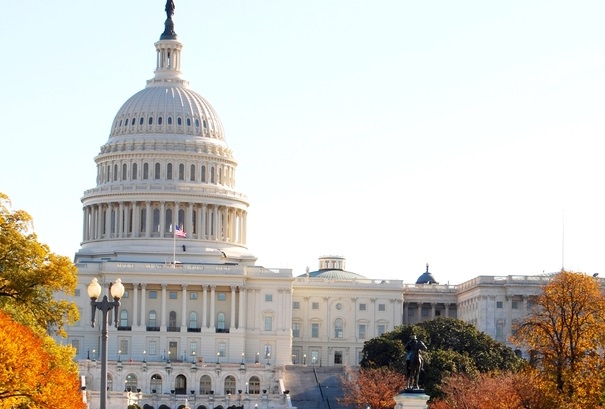Big ‘I’ Government Affairs: Where the 2022 Midterm Election Stands

By: Nathan Riedel
One week before the election, Gallup released a poll that showed that just 17% of Americans were satisfied with the way things are going in the U.S. This marked the lowest percentage in a midterm election since Gallup began asking the question 40 years ago.
Compound that with a presidential approval rating of around 41%–which marked the second-worst approval rating for an incumbent president in a midterm election since 1974—and the Democratic Party clearly had some stiff headwinds going into this election. It led most political prognosticators to predict a decent size red wave for Republicans in the U.S. House of Representatives and to a lesser extent the U.S. Senate.
However, this week, that wave turned into a trickle with Republicans making nominal gains in the House and potentially zero gains in the U.S. Senate.
As it stands, the dust is still settling on many congressional races. In the House, Republicans are projected to take over the chamber, changing the dynamic in Washington, D.C., and leading to divided government, but by a slim margin expected in the single digits. Reapportionment and redistricting following the 2020 election shored up many seats in Congress on both sides of the aisle and political pundits agreed that a limited number of seats were truly competitive heading into the midterms.
Republicans made marginal gains in those races but many of them will be competitive again in two years since they are in districts that President Biden won by mid-single digits in the 2020 presidential election.
Turning to the Senate, Democrats successfully defended many of their vulnerable seats and have a reasonable chance to maintain control of the upper chamber. Regardless of which party comes out on top, the margin will be fragile.
As of press time, Republicans control 49 seats and Democrats control 48. Seats in Arizona and Nevada remain too close to call. Democrats currently hold a lead in Arizona and that race is expected to be decided in the coming days. Republicans hold a small lead in Nevada, which is also is expected to be decided soon. If these races split between the two parties, Republicans will control 50 seats in the Senate to the Democrats’ 49.
In an evenly divided Senate, the vice president of the United States casts the tiebreaking vote—and that is where Georgia comes into play once again. The race there is headed to a Dec. 6 runoff and could quite possibly determine control of the upper chamber, just as it did in 2020.
Whatever the outcome ends up being, the Big “I” federal government affairs team is well-positioned to successfully advocate on your behalf. As information on the election continues to roll in, stay tuned to News & Views for analysis of how the outcome will affect independent agents across the country.
Over the next few weeks, the Big “I” federal government affairs team will be looking ahead to the 118th Congress and all the legislative issues that could impact the independent agency system.
During the midterm election, InsurPac distributed $1,911,500 to a total of 228 federal campaigns, winning at least 202 of them to chart an 89% victory rate. In disbursing this money, InsurPac did not look at party affiliation; as always, it gave money to representatives, senators and candidates for federal office who have been advocates for the independent agency system.
InsurPac’s financial support in these races is critical but the grassroots efforts demonstrated by independent agents is, as always, equally important. Numerous individuals volunteered their time to organize fundraisers, attend campaign events and, most importantly, cast their ballots. The Big “I” has always prided itself on representing individuals who understand and appreciate their civic duties and responsibilities, and this year was no different.
As with every election, some Big “I” champions suffered congressional losses. While disappointing, they are a reminder that the association’s friends in Congress cannot be taken for granted. They must have the necessary financial resources to win re-election each cycle. For that reason, it is critically important to have a strong PAC to support and defend its advocates.
Nathan Riedel is Big “I” vice president of political affairs.










